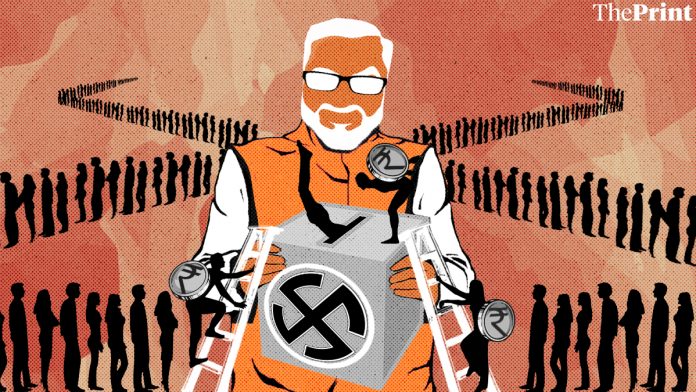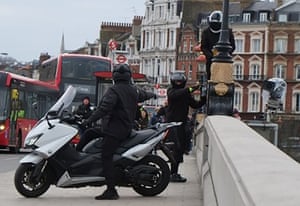By Girish Menon
In Mumbai, it appears that the taxis and autorickshaws are predominantly driven by migrants from Uttar Pradesh. In Kerala, as captured in the film Njan Prakashan, most of the physical labour is provided by migrants from the Bengal region. In the UK the nursing profession is dominated by migrants from Kerala and I don’t have to mention the Gulf where it is rumoured that one can get by with speaking Malayalam. These anecdotes do not adequately capture the migration of people all over the world.
This has led to resentment among the sons of the soil living in their ancestral lands. One of them speaking about Polish migrants felt ‘The Pole should get up every morning in Krakow, take a flight to the UK, pick fruit from the farms, collect the high wage and take a late flight back to Krakow’.
This shows that some sons of the soil admit that migrants fill a void in their labour markets and are a necessary evil to be tolerated.
On the other hand: the Brexit vote, the clampdown on the Mexican border, the identification of aliens in Assam show that political authorities are responding to their protests against uncontrolled migration.
So, why does this problem arise? Why do migrants leave their familiar surroundings to go to unfamiliar places and insist on working in increasingly hostile circumstances?
For starters, it could be that despite all the hardships faced in an alien land the migrant feels that his lot is still better than by continuing in his homeland. The film Peepli Live captures the distress in Indian agriculture, where despite all the government initiatives the protagonist finds himself leaving the village to work on a dangerous construction site in a big city. It is natural to assume that such a migrant would end up living in an illegal slum in that city.
Along with this group of desperate migrants there is also a group of economic migrants, this writer included, who seem to arbitrage the global shortage of skilled labour.
In the film Thackeray, Bal Thackeray the founder of the Shiv Sena alleged that South Indians, especially Malayalees, monopolised jobs in Mumbai and with their ‘clannish mentality’ would block opportunities for the sons of the soil. This sentiment has been echoed by similar politicians all over the world.
There is definitely some merit in their arguments too.
In the UK around 2004 Tony Blair allowed free labour market access to newly joined East European citizens. At the time there were no protests; the ruling Labour Party had ‘abolished boom and bust’ and the labour market was booming with wage hikes. The migrants were doing jobs that Britons did not want to do.
The feeling of anger only began following the 2008 financial crisis. The EU imposed strict austerity on the Euro member countries creating high levels of unemployment in their member states. The UK’s high minimum wage then acted as a magnet for migrants from the EU.
At the same time, in 2010 David Cameron’s UK government was ideologically committed to austerity and ‘balancing the budget’. They introduced severe funding cuts for schools, healthcare and welfare benefits. Thus, if you were an unemployed Briton living in Stevenage you suddenly discovered that the unemployment benefits were cut forcing you to look for a job while UK employers preferred foreigners for their higher productivity. This Stevenager’s family members also had to compete with Spaniards for reduced school places and Poles for access to the highly restricted health service.
Thus the revulsion to the foreigner may not have arisen without the deliberate and untimely austerity imposed by the Conservative-Liberal Democrat government.
So, is migration inevitable? Yes and no.
From a theoretical perspective, only having free movement of capital but not permitting free movement of labour goes against free market logic and globalisation. This is also a violation of Ricardo, because labour rich countries are being prevented from benefiting from their comparative advantage. So, if there is free movement of capital, goods and services then, unlike Boris Johnson’s argument, it is incumbent on labour rich countries to demand free movement of labour.
Nonetheless, there will always be some economic migrants who will arbitrage the wage differentials in the world. Also, there will be others who are fleeing political persecution in their respective countries.
However, some of the migration can be controlled. There could be a universal basic income available to all the inhabitants of a common market. This basic income could be determined on the basis of the minimum income required to live in the most prosperous province in a common market. Such an income will enable the prospective migrant to live a luxurious life in his depressed province and act as a deterrent to migration.
In the UK, some Conservative party members who colluded in imposing austerity and who lauded the growth of food banks have convinced Stevenagers that their economic woes are solely due to foreigners. This fear was fortified enough to win the Brexit referendum. Now the question remains if the EU elite will accept their demands for a free movement of goods and services and end the free movement of labour.
Since the interest of the EU elite are not the same as its peripheral members I will not be surprised if they collude with Johnson’s cohorts. Will this lead to peripheral members of the EU asking for an exit as well? I will not be surprised.
 Illustration by Soham Sen
Illustration by Soham Sen





